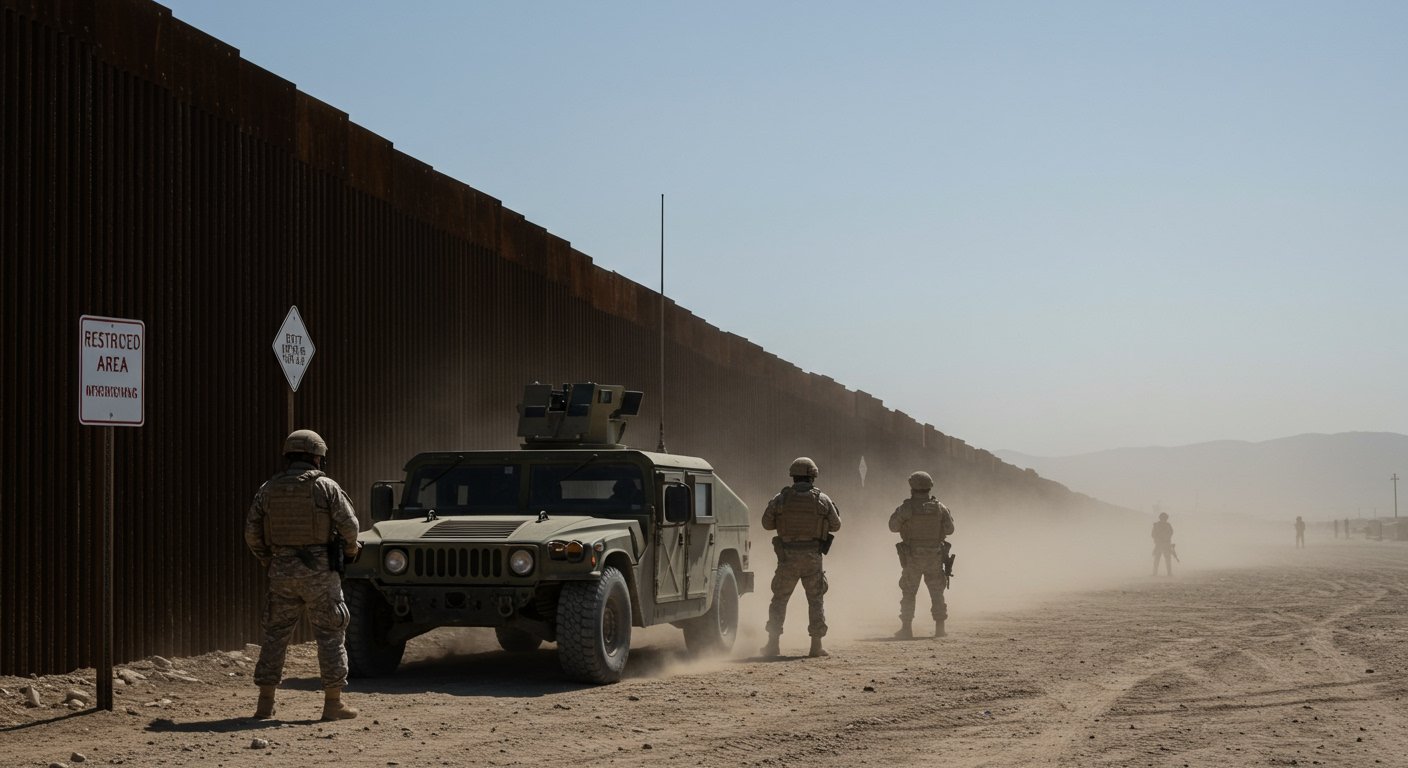US Expands Militarized Zones Across Southern Border
WASHINGTON D.C. – The United States has significantly expanded militarized zones along its southern border with Mexico, a move that will soon place nearly one-third of the frontier under the authority of nearby military bases. This policy shift empowers soldiers to directly arrest individuals crossing illegally, a departure from traditional border enforcement roles, and has ignited considerable controversy among civil liberties advocates.
The expansion builds upon a foundation laid by a national emergency declared by President Donald Trump on his first day in office. It represents a major escalation in the government’s approach to border security, integrating military resources more deeply into civilian law enforcement functions.
Scope of the Militarization
The initial phase of this strategy saw the introduction of two militarized zones in April and May. These zones span a considerable 230 miles (370 kilometers), extending from Fort Hancock, Texas, through El Paso, and westward across large tracts of New Mexico ranchlands. This established a precedent for direct military involvement in apprehending migrants within designated areas.
Last week, the Defense Department announced the addition of a substantial new zone in Texas’ Rio Grande Valley, adding another 250 miles (400 kilometers) to the militarized territory. Further expansion is planned with the designation of a zone near Yuma, Arizona. Once these additions are complete, the militarized zones will collectively cover close to one-third of the entire U.S. border with Mexico.
This expansive territory is patrolled by a significant military presence, comprising at least 7,600 members of the armed forces.
Legal Authority and Consequences
Operating under the authority granted by the national emergency declaration, these zones function as restricted areas. The Army has undertaken efforts to inform potential crossers, posting thousands of warnings in both New Mexico and western Texas. These signs explicitly declare the territory a “restricted area by authority of the commander.”
Individuals apprehended within these military-controlled zones face severe legal repercussions. Over 1,400 migrants have already been charged with trespassing on this designated military territory. A first offense under this charge carries a possible penalty of an 18-month prison sentence. Crucially, this trespassing charge is in addition to any existing charge for illegal entry under immigration law, potentially compounding the legal challenges faced by migrants.
Concerns Over Punitive Measures
The dramatic expansion and the legal framework enabling military arrests and trespass charges have drawn sharp criticism from civil liberties organizations. Rebecca Sheff, an attorney with the American Civil Liberties Union (ACLU), voiced significant concern regarding the government’s approach.
Sheff stated that the federal government is “testing a more punitive approach that could be expanded border-wide.” Critics argue that leveraging military authority and trespass laws for what is primarily an immigration issue represents an overreach and could set a dangerous precedent for the militarization of civilian matters.
Context Amid Falling Arrests
This intensification of military involvement at the border comes during a period when overall border crossings, specifically Border Patrol arrests along the southern border, have seen a significant decline. Recent data indicates that these arrests have dropped to the lowest level in six decades.
Providing a specific snapshot of this trend, only 137 arrests were made by Border Patrol on June 28, highlighting the counterintuitive timing of the military expansion relative to recent apprehension statistics.
Looking Ahead
The expansion of militarized zones marks a profound shift in border enforcement strategy, introducing direct military policing and potent criminal charges for unauthorized entry into designated areas. While proponents argue it is necessary for border security, civil liberties advocates warn of the potential for human rights violations and the normalization of military intervention in immigration matters. The long-term impact of this strategy on border communities, migrant flows, and the relationship between military and civilian authority remains a subject of intense debate and scrutiny.






